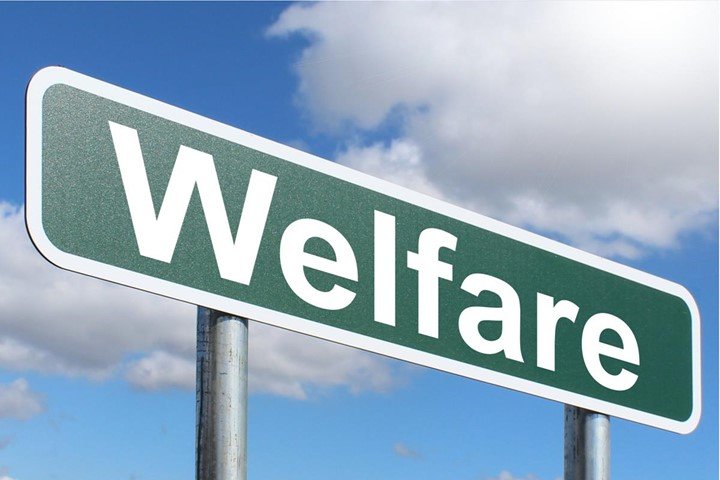Many countries have a welfare system. Welfare programs are generally ways the government helps some people meet the required standards of living and have a quality life. The main focus is on children so that they receive basic needs such as food and clothing. The truth is a number of people are unable to support themselves because of various circumstances. The causes can be extreme poverty, unemployment or disability.
The welfare programs are put in place by the government to ensure its citizens have a quality life. There are also measures meant to prevent abuse of this system. All said and done, there exist some drawbacks associated with the welfare system.
Pros:
1. The focus is to help children. More than half of the applications to the welfare programs consist of families with children. Many children are in households that lack some kind of food insecurity or the parents cannot afford better housing. Also, a number of parents can’t work because they have no one to take care of their children. These programs help subsidize such situations.
2. These programs help people in their greatest times of need. People are faced with emergencies or unexpected situations on a daily basis. For instance, a costly medical condition can wipe out all the savings of a family. Programs such as Medicaid or medicare greatly help in such difficult times.
3. Welfare programs significantly help reduce crime rates. Poverty and lack of basic needs are some of the main reasons people result in crime. Providing benefits such as food or subsidized housing can work to reduce crimes committed out of desperation.
4. It is a great way to help the poor. In many countries, people continue to suffer due to poverty. Some families cannot even afford one meal in a day and they end up going to bed hungry. This is beneficial to poor people who don’t have access to basics such as food or medical care.
5. Welfare can be a way to guide people towards the right path. Very few people are comfortable with the fact that they have to depend on monthly benefits. This can push them to work harder and provide for their families.
6. Welfare benefits usually have caps. Basically, caps are placed on welfare benefits to prevent overdependence and fraud. This makes it only temporary so that people learn how to provide for themselves or their families. For instance, there is a limit on the amount a household can receive within the year.
7. The benefits can supplement the income of working parents. Some parents are low-wage employees and hence cannot cater to all the needs of their families. In this case, welfare benefits can work to supplement their low income.
8. It allows families to survive a devastating financial crisis. This can be the death of a breadwinner for the family or a sudden loss of employment. All these are devastating occurrences for those who face them.
9. Goes to those who qualify for it. There should be a reason why you need welfare benefits. For instance, many single mothers may be struggling with taking care of their families and finding favorable employment.
10. Welfare programs help reduces poverty. Since the introduction of welfare programs, poverty levels have significantly decreased.
Cons:
1. Sometimes administrators fail to recognize instances of fraud. According to the U.S department of labor, about 2% of welfare benefits distributed every month are given to fraudulent applications. A huge number of households are receiving benefits illegally.
2. At times this encourages corporations to pay lower wages. Apparently, the welfare funds encourage some large corporations such as Wal-Mart to pay lower wages to employees.
3. May not be effective for some families. This is because the benefits work as supplementary income and not a substitute wage.
4. There is a stigma associated with accepting welfare benefits. People who receive welfare benefits often face a lot of criticism and stigma from the public. For instance, the beneficiaries are shamed at the grocery stores when the cashier is processing checks.
5. The support is not consistent. There is very little consistency in their structure. If there is a family that qualifies for the benefits and moves to another area, they are unable to apply.
6. Welfare programs can create dependence. Some individuals or families can easily become accustomed to the benefits they receive. This can be in the form of housing, food or medical assistance. In this case, such people don’t work towards becoming better and instead live off the taxpayer’s money.
7. The programs don’t address the root cause of poverty. There are very many changes in modern industries. Technology is quickly changing everything and those people who were once skilled workers are now unemployed. Such people should be trained in new technology and skills.
8. The cost of welfare programs can go to extreme heights. Keep in mind, it’s the taxpayers who have to pay for the welfare programs and this amount often goes up to trillions. However, even with such huge amounts of money channeled towards welfare benefits, some families still face food insecurity.
9. The applications are tedious and long. The application process for the welfare benefits is often associated with stigmatization and people are even subjected to unwanted drug tests. Furthermore, their necessary interactions can be prolonged to the point an individual or household gives up.
10. The money is not enough to make a significant difference. The income requirement for individual welfare benefits is to earn $12, 140 and $4,320 for every additional person is a family. This can disqualify some families who genuinely need help.



